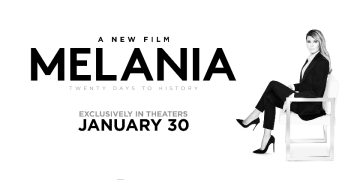DraftKings, FanDuel and other sports betting apps have blitzed Connecticut with advertising throughout 2021 after Gov. Ned Lamont signed a bill in May that legalized both online sports books and internet gaming.
“By signing this bill into law, Connecticut is now on the cusp of providing a modern, technologically advanced gaming experience that will be competitive with our neighboring states and positions us for success into the future,” Lamont said at the time of the signing. The law’s passing allowed the placing of bets on thousands of sporting events and their outcomes as well as a host of virtual slot machines, roulette wheels and card games.
The new law was implemented alongside a memorandum of understanding which would allow the Mohegan Tribal Council and the Mashantucket Pequot Tribe to operate the online sites through their Mohegan Sun and Foxwoods casinos, respectively. In return for being able to realize millions of dollars in additional revenue, tribal nations agreed to send a portion of that money directly into state coffers. In November, the first full month of operations, Connecticut earned $4.2 million with 59% stemming from online sources before taxes on the casino’s earnings were factored in.
While the state stands to gain a considerable amount from this change to the law, including potential expansion of casinos which are already major employers, it is not without risk. The presence of gambling and sports betting apps on phones and computers could be ruinous for problem gamblers according to Diana Goode, executive director of the Connecticut Council on Problem Gambling (CCPG).
 “We are not here to tell people how to spend their disposable income,” Goode stressed when discussing the potential downsides of this legislation. “We just want to make sure that as gambling becomes easier and more accessible, that there safeguards in place. A lot of people can gamble and it’s fun. We are not worried about those people. We are worried about the people who gamble for who it’s not fun.”
“We are not here to tell people how to spend their disposable income,” Goode stressed when discussing the potential downsides of this legislation. “We just want to make sure that as gambling becomes easier and more accessible, that there safeguards in place. A lot of people can gamble and it’s fun. We are not worried about those people. We are worried about the people who gamble for who it’s not fun.”
For Goode, not enough resources are being allocated to help mitigate the potential risks for problem gamblers.
“We estimate about 35,000 people in the state have a real problem with gambling,” she explained. “And when you factor in the number of family members that are impacted that number really grows.”
According to Goode, problem gamblers are known to empty bank accounts imperil future plans by cashing out 401(k) plans and college savings.
“Problem gamblers don’t think they’re stealing money, they think they’re just borrowing it,” Goode said of the risks problem gamblers can pose to businesses. She pointed to the case of Michael DiMassa, the former West Haven state representative who was charged with embezzling more than $600,000 in Covid relief funds primarily to buy gambling chips.
“One of the training opportunities we want to do but which we can’t now afford to do is talk to business owners about fraud, embezzlement, about how to look for things like that,” she said. “There are some red flags you can look for and we would love to do training with that, but we just can’t afford it.”
CCPG is funded by contributions and grants directly from Foxwoods and Mohegan Sun, as well as the state’s Department of Mental Health, private contributions, and a smaller contribution from the Connecticut Lottery. According to their 2020 financial audit, those contributions amounted to more than $740,000 while running the council cost more than $660,000. CCPG’s single largest expense was paying employee salaries, followed by the costs of running the state’s problem gambling hotline service.
Goode said that the increased funding brought in by online gambling revenues in combination with the existing funding obligations is only enough to hire an additional hotline operator, which would bring the total to four, while before the pandemic they had five. She anticipated that a flurry of betting during college basketball’s March Madness may cause a dramatic spike in demand for the hotline, particularly given the widespread access phone-based applications provide.
“All of this new money is coming into the state with gambling, and we still can’t afford to get back to pre-Covid numbers,” she lamented. “It’s frustrating.”
This comes at a time when Goode said that hotline calls have tripled, albeit in part due to some confusion about the hotline’s purpose. Goode added that “a lot of them are not callas about problem gambling, but about how to log into their sports betting accounts,” and she estimated that around 60 calls to the hotline a month at the moment were from people looking for help with FanDuel or DraftKings accounts after finding customer service unhelpful.
Ray Pineault, the president and CEO of Mohegan Sun Gaming and Entertainment said that his organization was the single largest contributor to the CCPG.
“I can tell you that our funding to the council has not diminished at all in my tenure here and I have been here for almost 15 years,” Pineault said. “We probably will go on to increase our funding to the Connecticut council, but we also think there’s other ways that we can enhance responsible gambling and provide treatment for problem gambling. And it wouldn’t necessarily just be through the council.”
Pineault also disputed the idea that mobile gambling is more dangerous for problem gamblers.
“I would argue that [internet] gaming is probably a safer form,” he stated. “We are able to identify the problem gambling because we can tell how much you’re playing, how often you’re playing.”
Pineault pointed out that algorithms monitor the players and flag risky behavior for review, triggering pop-up warnings to players designed to call attention they have placed an unusual number of bets in a short period of time. Pineault also indicated that Mohegan Sun is in the process of forming a partnership with “a very prominent partner” to explore alternative means of treating gambling addiction, although he was not at liberty to discuss the details at this time.
















